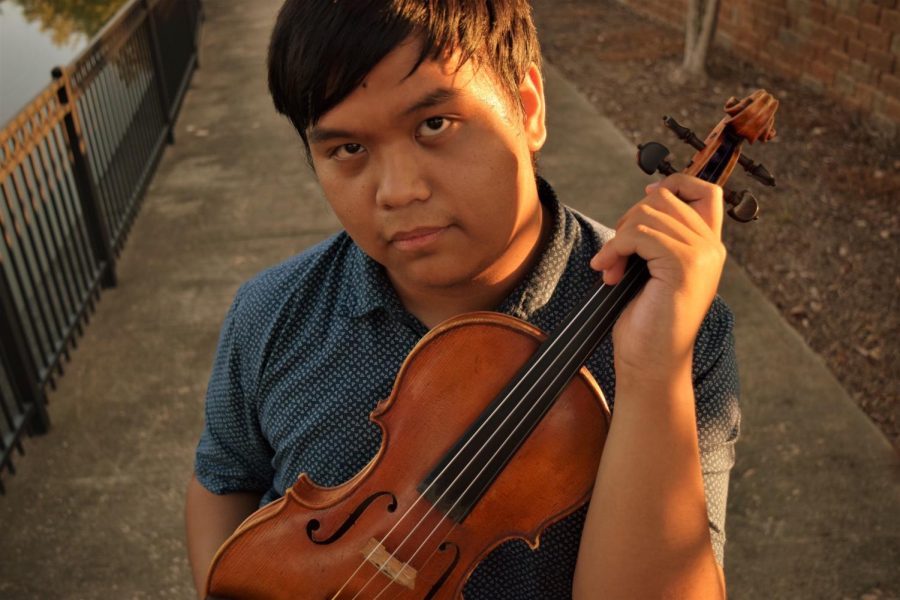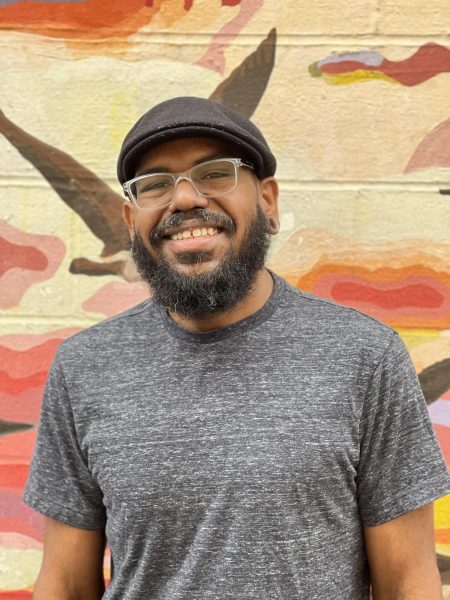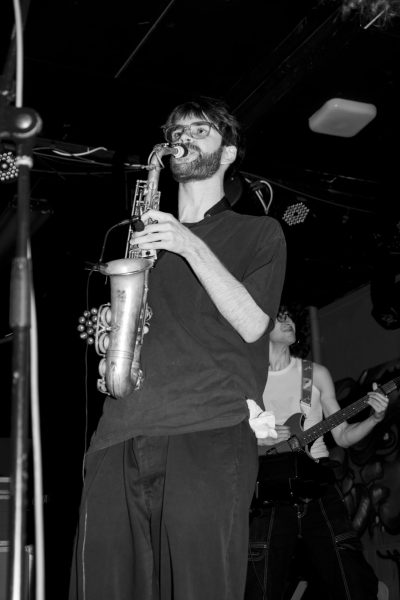Johnum Palado, Violinist, Church Organist, and Aspiring Video Game Composer
Johnum Palado of Shreveport, Louisiana is a fourth-year Violin Performance major at the Conservatory, minoring in Mathematics in the College. He has served as concertmaster of the Oberlin Orchestra and the Contemporary Music Ensemble, and performed in the Danenberg Honors Recital in 2020. As a winner of this year’s Oberlin Senior Concerto Competition, he will perform Prokofiev’s Violin Concerto No. 2 as soloist with the Oberlin Orchestra this coming May.
This interview has been edited for length and clarity.
Could you talk a little bit about your upbringing and musical experiences before Oberlin influenced your artistic development?
I feel my upbringing was different. I have other violin friends who started in the Suzuki program by age three or four, but I found my way into music in very different circumstances.
Coming from an immigrant family — I was born in the Philippines and my family immigrated to the U.S. when I was three — my family was still trying to become financially comfortable as I started my life in music. My dad was working multiple jobs, and my mom was working at a casino.
My first introduction to music was through a violin after-school program sponsored by the music teacher there, and it was funny because most parents saw it as more of a daycare.
Since my family is Catholic, I also learned how to play in a church setting, performing and improvising on the violin, and playing hymns on piano and organ.
These experiences gave me a better appreciation for music not just as a violinist, not just as a pianist or composer, but as a human. It made me better at learning through transition.
Did you ever have a moment during your upbringing that really solidified you wanted to study music?
I think it’s more a series of smaller moments for me; it’s more about the discovery of little things that keep me invested in a career path for music. When I listened to my hometown orchestra for the first time, I was just blown away by that sound. I wanted to recreate that.
When I started playing piano for church as a substitute, it was also really eye-opening because I found out I really liked to improvise not just from what was available — the hymns or in the sheet music— but also what came in my head. That led to me enjoying composition because it was so gratifying seeing what was in my head visualized in a score.
In high school, I started dabbling in composition inspired by video games. I played pieces from The Legend of Zelda, Super Smash Bros., “Studio Ghibli,” Star Wars, and other fun VHS tapes I could find back home.
Is there any common thread that comes to mind when you think about how you live and work as a multifaceted musician?
Through improvising, composing, and playing for church on the violin, I learned how to understand music outside of what’s on the page. For me, the common thread is seeing music as a living thing that can be morphed into something that resembles you as a person.
People always forget to become themselves through the music. I see music as a tool to help me become a better individual. It can be stressful — partly what I do to combat that is to just listen, because I feel like another part of being in the Conservatory is always being on the grind, always practicing, and rest is so crucial as a musician.
Music is a medium to convey important messages to the audience, but it also needs to fit your needs.
What adv![]() ice would you give to your younger self?
ice would you give to your younger self?
It’s okay to not be sure where you want to be. When I started violin, I thought that’s what I wanted to do—always explore, always be curious, even if it’s something that you’re not sure about. For me, it was definitely about free improvisation, which I decided to dive into this semester. So far, it’s been really cool. There are certain things that you wouldn’t get to experience just having one linear path. It’s okay to not like music at the end of it.
Right now, what kind of vision do you have for the future?
I’d be really satisfied just having my own studio and making music, either for video games or film. Having that space to cultivate ideas is definitely a future goal for me. There’s no sense of being stationary from 9–5 and then just going back home, doing nothing. You’re always busy exploring and understanding music.
I also see myself playing in church as well; it’s such a sacred place that emotionally speaks to me as a Catholic. Those senses of reverence can only be replicated in a church setting and playing music. It’s such a different experience compared to a concert hall. In a way the music is not the centerpiece of the church service; it’s only part of it. And so even when it’s just music-playing, the music serves a purpose.







